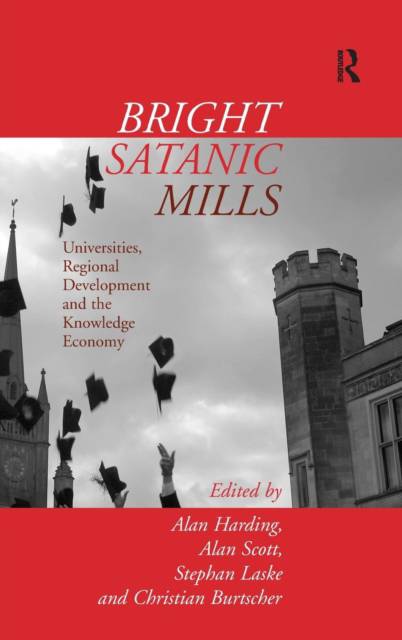
- Retrait gratuit dans votre magasin Club
- 7.000.000 titres dans notre catalogue
- Payer en toute sécurité
- Toujours un magasin près de chez vous
- Retrait gratuit dans votre magasin Club
- 7.000.0000 titres dans notre catalogue
- Payer en toute sécurité
- Toujours un magasin près de chez vous
Bright Satanic Mills
Universities, Regional Development and the Knowledge Economy
Alan Harding, Stephan Laske
Livre relié | Anglais
290,45 €
+ 580 points
Format
Description
Recent years have seen a growing emphasis upon the need for universities to contribute to the economic, social and environmental well-being of the regions in which they are situated, and for closer links between the university and the region. This book brings together a cross-disciplinary and cross-national team of experts to consider the reasons for, and the implications of, the new relationship between universities and territorial development. Examining the complex interactions between the 'inner life' of the university and its external environment, it poses the question: 'Can the modern university manage the governance and balancing of these, sometimes conflicting, demands'? Against a backdrop of ongoing processes of globalization, there is growing recognition of the importance of sub-national development strategies - processes of regionalization, governmental decentralization and sub-national mobilization, that provide a context for universities to become powerful partners in the process of managing sub-national economic, social and environmental change. Allied to this, the continued evolution of the knowledge economy has freed up location decisions within knowledge-intensive industries, while paradoxically innovation in the production of goods and services has become still more 'tied' to locations that can nurture the human and intellectual capital upon which those industries rely. Thus cities and regions in which higher education services are concentrated have, or are thought to have, a competitive advantage. With universities facing ever increasing pressures of commercialization, which deepen the engagement between universities and external stakeholders, including those based in their localities, the tension between the university's academic (basic research and teaching) mission and external demands has never been greater. This book provides a long overdue analysis, bringing all the competing issues together, synthesizing the key conceptual debates and analyzing the way in which they have been experienced in different local, regional and national contexts and with what effects.
Spécifications
Parties prenantes
- Auteur(s) :
- Editeur:
Contenu
- Nombre de pages :
- 258
- Langue:
- Anglais
Caractéristiques
- EAN:
- 9780754645856
- Date de parution :
- 19-02-07
- Format:
- Livre relié
- Format numérique:
- Genaaid
- Dimensions :
- 156 mm x 234 mm
- Poids :
- 539 g

Les avis
Nous publions uniquement les avis qui respectent les conditions requises. Consultez nos conditions pour les avis.






